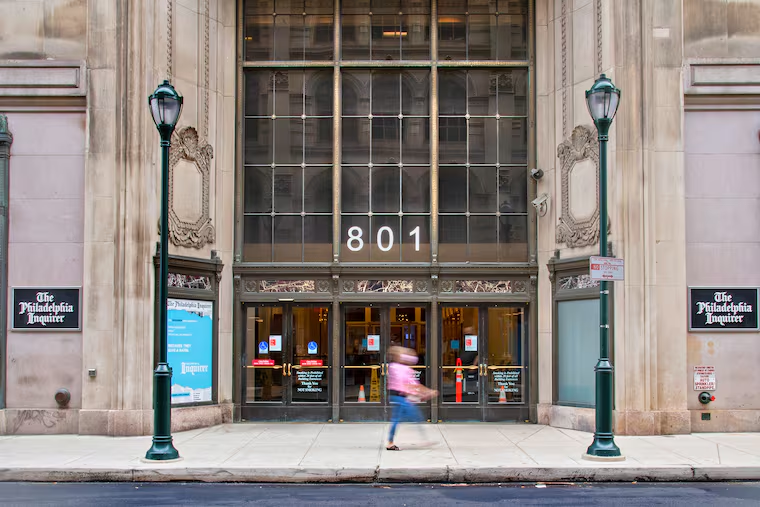Inquirer publisher: One year later, reflection and a look ahead
A year after the murder of George Floyd in Minneapolis and the printing of a racist headline in The Inquirer, work remains left to achieve an equitable future for all.

June 2 will mark a year since The Philadelphia Inquirer published this racist headline: “Buildings Matter, Too.”
If printing those words in 72-point type had occurred in a vacuum, it would have been a grievous and unpardonable offense. That it was published at a moment of national reckoning over social justice — prompted by the vicious murder of George Floyd at the hands of the police a year ago yesterday — amplified the outrage and brought us well-deserved scorn and scrutiny.
There is something of a playbook whenever a self-inflicted crisis like this threatens to define any institution and the people who work for it. And so it played out here. Apologies were issued, a change in newsroom leadership was announced, earnest promises of reform and redress were made.
But what has happened since? If our call then was to become an antiracist news organization, what has been done? Has the passage of a year yielded anything concrete? Is there anything that adds real meaning to the lofty and ambitious goals announced over a few tense days when we faced the deserved public criticism?
The answer is a qualified yes. It is qualified because we recognize that the course of redress we set for ourselves demands commitment, honesty, perseverance, measurable progress, and, yes, time to do the work. In the end we should be judged by what we do and not what we have promised to do. Just as journalists hold institutions accountable, our audience should also hold us accountable.
There is an inherent risk in this kind of message. It can come off as self-congratulatory. It can convey a false and self-serving sense of mission accomplished. Let me be clear that this is not the intent. We offer a review of the last year so you, our audience, can know where we are on this road and so hold us to account.
A month after the headline was published, the newsroom began a comprehensive process to examine nearly every facet of what our journalists do. Almost 80 staffers, more than a third of the newsroom, have convened every week since. In working groups, they discuss complex issues and make recommendations that are then considered by a steering committee made up of managers and frontline staffers. To date, all have been adopted.
Here’s a sampling of what has been done or is close to being launched:
Producing an antiracism workflow guide for the newsroom that provides specific questions that reporters and editors should ask themselves at various stages of producing our journalism.
Establishing a Community News Desk to address long-standing shortcomings in how our journalism portrays Philadelphia communities, which have often been stigmatized by coverage that over-emphasizes crime.
Creating an internal forum for journalists to seek guidance on potentially sensitive content and to ensure that antiracism is central to the journalism.
Commissioning an independent audit of our journalism that resulted in a critical assessment. Many of the recommendations are being addressed, and a process for tracking progress is being developed.
Training our staff and managers on how to recognize and avoid cultural bias.
Examining our crime and criminal justice coverage with Free Press, a nonprofit focused on racial justice in media.
Setting specific diversity goals for 2021, with an emphasis on promotions, hiring, and representation in leadership.
Establishing a formal process that will allow, upon petition and approval, for certain types of stories to be rendered harder to find in online searches. This recognizes that our digital archives includes countless stories focused on minor crimes and disproportionately affect people of color.
A lot remains to be done — and there are likely challenges ahead that we can’t anticipate. But if reckoning requires a commitment to change and a clear path to reach it, then I hope you agree that our progress in the last year is tangible proof of both.
None of this would have happened had it not been for the work done by the many in our company who have embraced this critical mission, who have dedicated their time, and who every day help guide us forward. Our journalism is, and will be, better for their efforts.
Elizabeth H. Hughes is the publisher and CEO of The Philadelphia Inquirer.